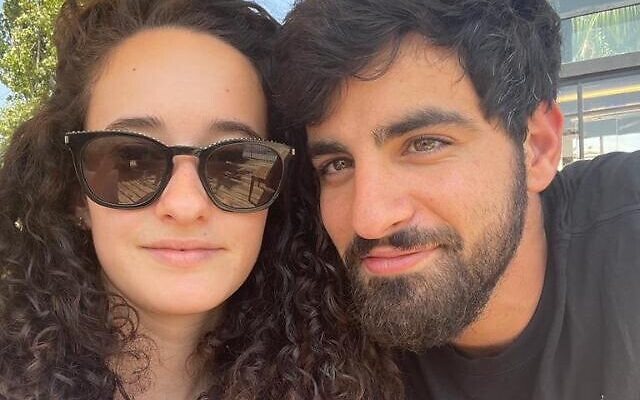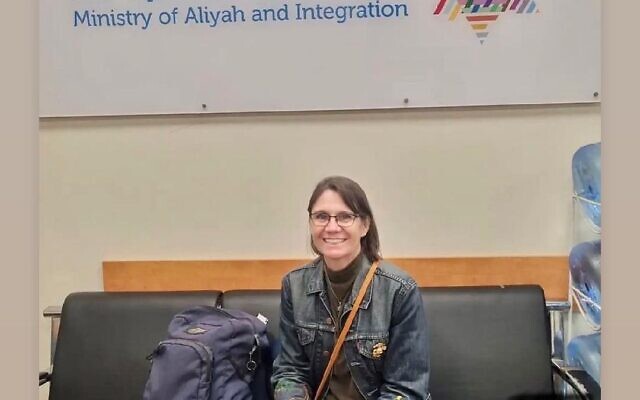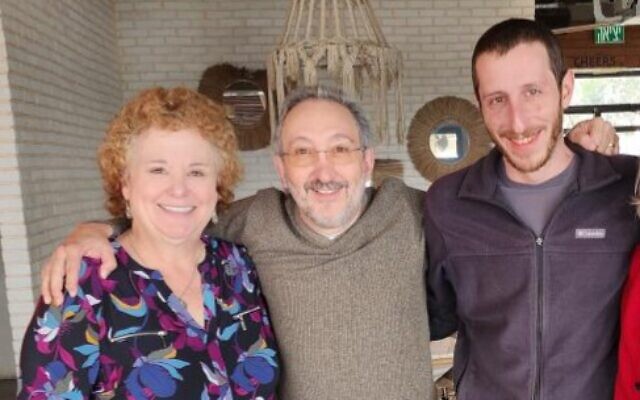Recent Immigrants to Israel Share Their Experiences
One former Atlantan immigrated four days after the war with Hamas started.

While hundreds, if not thousands, of Americans and some Israelis have been fleeing from Israel after the war broke out Oct. 7, at least one former Atlanta Jew was immigrating to the country.
Just four days after some 2,000 Hamas terrorists infiltrated Israel from Gaza, killing 1,400 and capturing more than 200 children, women, and men and taking them back to Gaza, Tamarah Rosenberg immigrated to Israel. “My comment when I learned the war broke out,” she told the AJT, was that “if El Al flies, so do I.” Her daughter, Deja, and her husband had made Aliyah in October 2020 during the height of the COVID pandemic. “We like to do hard things,” she added.
Rosenberg only lived in Atlanta for about six years, but she still has close ties to the city. “We became more observant after all the love and support we received at Congregation Beth Shalom,” she said. When she and her husband separated in 2013, she moved to the Northeast, while her daughter moved to Oregon and her son to the American Hebrew Academy in Greensboro, N.C. Her husband remained in Atlanta, and she often returned here for the holidays. “I feel my Jewish identity was born there. I have as many close friends in Atlanta as I do in the Northeast,” said Rosenberg, who left Newark, N.J., for Israel on Oct. 10.

On the Nefesh B’Nefesh Facebook page, she wrote: “Life in Israel has transformed my existence. The sheer act of living and breathing here carries with it profound meaning. My Aliyah experience has taught me invaluable lessons about humility, as sometimes the local sentiment of ‘welcome to Israel’ reminds me to embrace the country’s idiosyncrasies.”
Nefesh B’Nefesh is the nonprofit organization that encourages and facilitates Aliyah from the U.S., Canada, and the U.K.
She admitted to some hesitancy after the war started. “When faced with the realities of the current war just days before my planned move, doubts crept in. But a timely call from my daughter who is living here reconfirmed my decision.” Of the 20 new immigrants who had planned to make the move with Rosenberg, the number dropped to 14 the day before the flight and finally down to a total of seven.
“I was on the first Aliyah flight after the war began,” she told the AJT.
Moving from one country to another is never easy or simple. Doing so during the war certainly added complications.
“It has been made so much easier for me to navigate because my daughter speaks basic Hebrew and can navigate the systems. There is very little support from Nefesh B’Nefesh or [the] Immigration [authorities] right now because so many people have been called up [to serve in the army] and government offices have been closed. I need a national ID card to receive the absorption basket [of benefits] and cannot get that because I cannot make an appointment with the office.”
She added that she had intended to stay with her daughter in Tel Aviv for just a short time, but now plans to stay for the foreseeable future. Her daughter has a bomb shelter in her two-bedroom apartment, “so when the [warning] siren goes off, I get off the couch and move into the bedroom.”
Sirens warning of incoming rockets shot from Gaza are not the only notable sounds former Atlantans are hearing nowadays. Gil Tohar was born in Israel, but moved with his mother and brothers to Atlanta when he was eight years old, until he was 25. He immigrated to Israel three-plus years ago and lives with his new bride in the Beit Hakerem neighborhood of Jerusalem.

Just two days after the war started, with his windows open, he heard a prayer being repeated over and over again. But until he attended the funeral of a distant, 19-year-old cousin a few days later, he didn’t understand what he had heard. “It was the same prayer service non-stop. It dawned on me that it was the army chazan, or cantor, conducting funerals” at Mount Herzl national cemetery less than one mile from his home. Israeli media have reported that a request had even been made around the country for volunteer gravediggers to assist with all the demand since the war began.
Not dissimilarly from Atlanta Jews, Tohar reports often feeling helpless during the biggest crisis that Israel has experienced in its 75 years. He and his wife have donated blood; she’s done laundry for some of the hundreds of Israeli families who were evacuated from homes along Gaza or near the Lebanese border. Many are now staying at hotels in the center of the country. “We’re trying to stay strong,” he said. “It was uplifting to see everyone giving blood. When bad things happen, we see people volunteering.”
Without a bomb shelter in their building, Tohar and his wife, Meital, along with two dogs, moved to her sister’s house outside of Jerusalem for a week when sirens were blaring frequently in the area. Now, they keep a packed suitcase by the door in case they need to return.
Tohar said that because Israel is such a small country, everyone is just “a few degrees of separation from those directly affected” by the war.
Many U.S. Jews contend that antisemitism has surged in this country since the war began. But at least one relatively new immigrant said it was the antisemitism he was experiencing in the country’s Pacific Northwest that prompted his decision to make Aliyah four years ago.
Avi Zimmerman said he started feeling unnerved by increasing antisemitism among his friends and others close to him. “Most recently I was in Seattle before moving here. I watched as Proud Boys marched down the streets with Nazi flags and I felt, ‘yea, might be the time to consider new accommodations for myself.’”

He seems to be less unsettled by the war around him. “My family has very close ties with Israel,” the son of Congregation Beth Shalom Rabbi Mark Zimmerman said. “This isn’t the first ‘rodeo’ so to speak for any of us. We’ve all had our own experiences with being in the midst of terrorist attacks.” His parents own an apartment in Modiin which they currently rent out. Rabbi Zimmerman told the AJT that they plan to live half of the time there and half of the time in Atlanta eventually. “We have five wonderful grandchildren right here in Atlanta. Our hearts are deeply entrenched in two places.”
Without a bomb shelter in their building, Tohar and his wife, Meital, along with two dogs, moved to her sister’s house outside of Jerusalem for a week when sirens were blaring frequently in the area. Now, they keep a packed suitcase by the door in case they need to return.
His son acknowledges that his family worries about him, but he updates them on a WhatsApp group “whenever there is a rocket attack in my area. But generally speaking, I feel okay and safe. At least safer than I think I’d feel anywhere else. I have my bomb shelter, plenty of other places to take refuge in my area when I get caught outside at the wrong time, and we have the Iron Dome which continues to work marvelously (albeit loudly).”
Living in Tel Aviv, Zimmerman added, “To be perfectly honest, my dog is suffering the most between the two of us. He hated fireworks to begin with. Getting him to go on walks these days is like trying to get a kid to eat broccoli. If he hears a siren even out in Holon or Rishon [nearby cities], he’s staying inside for the next four to six hours at least.”
Avi Zimmerman said that since the Hamas attack in early October, “there is a strong sense of community in the streets again, which is a breath of fresh air from the political turmoil of the past few months. That’s not to say there isn’t a bit of silent dread to go along with it. Everyone knows it’s different this time, and no one is quite sure how it will end.”



comments